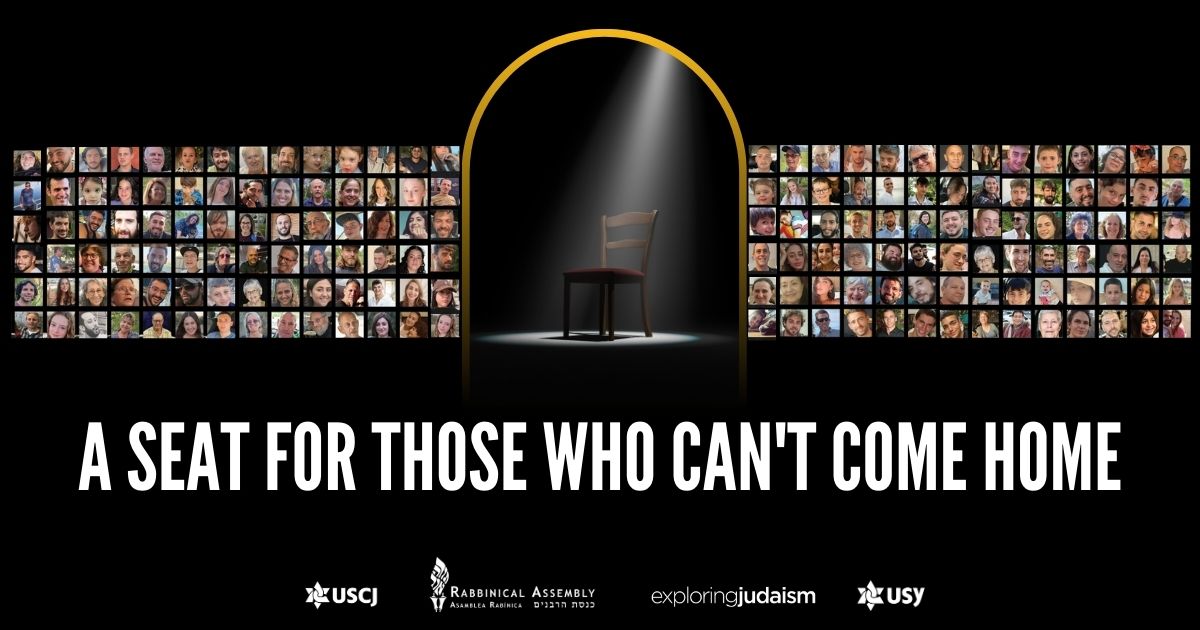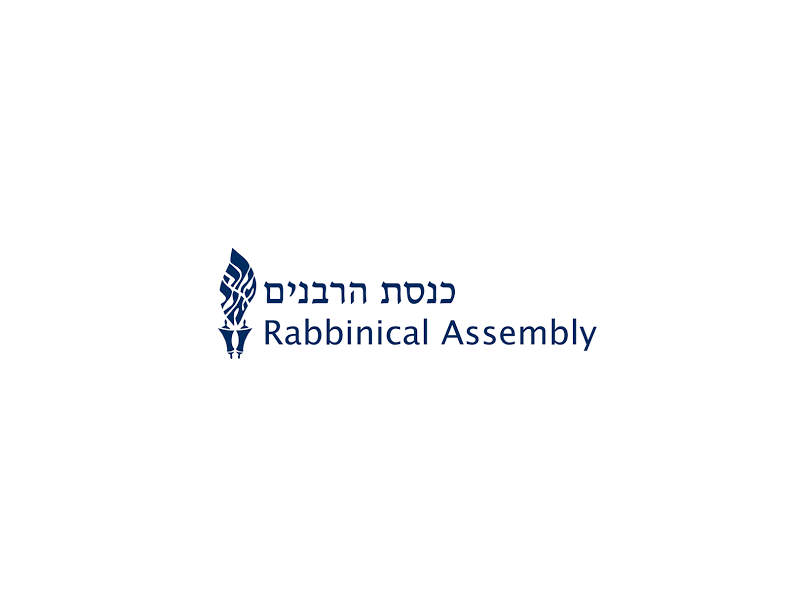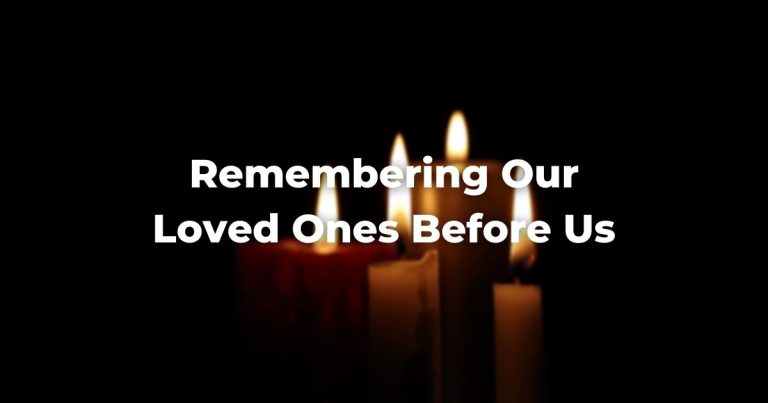The Seder table should be prepared before candle lighting so we can begin the ritual as soon as possible. This year, we encourage an extra setting at your table—an empty chair for our family still in captivity in Gaza.
This ritual is yours to shape: you may choose to leave the chair empty or put a sign or a list of the captives in the seat or on the plate. The poignancy will remain – it is empty as we engage in joy.
Like the seder table and other ritual items, this empty chair may spark conversation and kavannah – intentionality or focus. Children might ask, “Why is there an empty place at our table?”
We can answer,“This creates the opportunity to remember those in captivity who can’t be at the seder.” As appropriate, according to the age of the people around the table, we might also talk about being sad about what is happening in Israel, that many people are suffering, and that some people are not able to be at a seder with their families. We could discuss feelings of being forced to do something against our will, or the feeling of being unsettled, away from family, or simply sad. This, too, is part of the seder—the feeling of being incomplete or broken.
Like breaking the middle matzah – making it the bread of affliction and a cue to the answers we give tonight – we recognize that we live in a broken world. When we drop the wine from our cups during the recitation of the plagues, we recognize that even as we go free, others are made to suffer.
Before Kiddush, we read this together:
We are a people of hope. A nation of anticipation. We know that redemption can come ‘in the blink of an eye.’ We remember Miriam, who never gave up – who, on her own initiative, followed Moses in his journey down the Nile and set the redemption from Egypt in motion (Exodus 2:4). Who spoke truth to power even at great (Numbers 12) personal risk. We invite Elijah, the herald of the redemption, to celebrate with us this night, to join our vigil, and to pray with us in hope (Malachi 3:23). Elijah had the power to breathe life into one who appeared beyond hope (I Kings 17:19-23).
The empty chair is a symbol.
Of our loss.
Of our hope.
Of our belief that it will one day again be filled.
Too many of our family remain in captivity—too many, even if it were only one.
And so we add to Miriam and Elijah’s cups the empty chair of the hattufim: the kidnapped, the ones frozen in time, the missing, the ones who, like us, wish only to be safe and loved.
We pray like Moses, who interceded for Miriam – “Oh God! Heal them!” (Numbers 12:13).
We pray like Hannah that we should “rejoice in God’s deliverance.” (I Samuel 2:1).
We pray like Abraham to save the righteous from the wicked (Genesis 18:16-33).
We pray with our whole selves that we blink and wake from the nightmare.
As we pray each day in the central prayer of each weekday service, the weekday Amidah:
Sound the great shofar announcing our freedom, raise the banner signaling the ingathering of our exiles, and bring us together from the four corners of the earth. We anticipate redemption!
Barukh atah Adonai, who gathers the dispersed of Your people Israel.
Author
-

The Rabbinical Assembly is the international association of Conservative rabbis. Since its founding in 1901, the Assembly has been the creative force shaping the ideology, programs, and practices of the Conservative movement, and is committed to building and strengthening the totality of Jewish life. The Assembly publishes learned texts, prayerbooks, and works of Jewish interest; and it administers the work of the Committee on Jewish Law and Standards for the Conservative movement. It also serves the professional and personal needs of its membership through publications, conferences, and benefit programs, and it coordinates the Joint Placement Commission of the Conservative movement. Rabbis of the Assembly serve congregations throughout the world, and also work as educators, officers of communal service organizations, and college, hospital, and military chaplains.
View all posts






